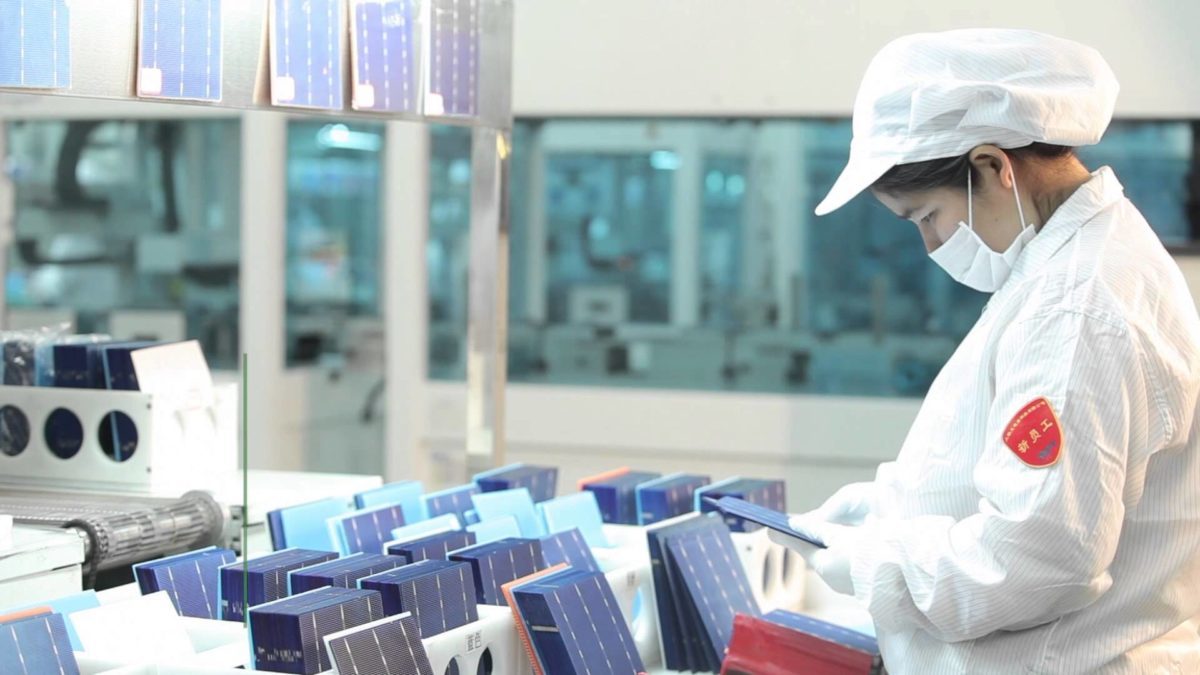Chinese PV module giant JinkoSolar has confirmed it will expand its monocrystalline wafer production capacity from 6.5 GW to 11.5 GW through the construction of a new factory in Leshan, in the southern part of the Chinese province of Sichuan.
The new facility is already under construction, the company said, and will start manufacturing in the fourth quarter, with construction set to be finalized in the previous three-month period. Jinko added, it has signed an investment agreement and completed feasibility reports and project design planning for the project, without revealing more details.
“We expect the added mono wafer capacity from this new facility to significantly increase the proportion of self-produced, high efficiency products and improve overall profitability,” said Jinko CEO, Kangping Chen.
At the end of 2018, the company’s production capacity stood at 9.7 GW for silicon wafers, including polycrystalline products; 7 GW for cells; and 10.8 GW for modules, according to its annual financial results. By the end of this year, Jinko wants those figures to reach 15 GW for wafers – 11 GW of which would be monocrystalline; 10 GW for cells, 9.2 GW of them PERC products; and 15 GW of module capacity.
Jinko had already outlined its plan to expand monocrystalline wafer production capacity, specifying it was aimed at reducing manufacturing costs by optimizing the use of large scale crystalline furnaces and reducing diamond wire consumption in cutting. The news of Jinko’s ambitious expansion strategy emerged on the day fellow Chinese Tier 1 manufacturer Longi Solar unveiled similar plans.
Big deals
In a separate release, the Chinese manufacturer announced it had already secured module orders with an aggregate capacity of 10.7 GW for this year. Large supply deals are said to have come from markets including Vietnam, Mexico and Spain.
Jinko said the orders are primarily related to its high-efficiency products, including the latest Swan bifacial modules, which were launched recently. “This highlights a clear trend taking place in global markets, with demand shifting towards high-efficiency products,” the company said. The product is based on Jinko’s ‘Cheetah’ solar cell line, with a transparent version of DuPont’s Tedlar PVF backsheet film.
“Our strategic foresight to expand into high efficiency product markets at an early stage is paying off,” said Jinko chief marketing officer Gener Miao, in the 2019 orders statement.
This content is protected by copyright and may not be reused. If you want to cooperate with us and would like to reuse some of our content, please contact: editors@pv-magazine.com.




1 comment
By submitting this form you agree to pv magazine using your data for the purposes of publishing your comment.
Your personal data will only be disclosed or otherwise transmitted to third parties for the purposes of spam filtering or if this is necessary for technical maintenance of the website. Any other transfer to third parties will not take place unless this is justified on the basis of applicable data protection regulations or if pv magazine is legally obliged to do so.
You may revoke this consent at any time with effect for the future, in which case your personal data will be deleted immediately. Otherwise, your data will be deleted if pv magazine has processed your request or the purpose of data storage is fulfilled.
Further information on data privacy can be found in our Data Protection Policy.